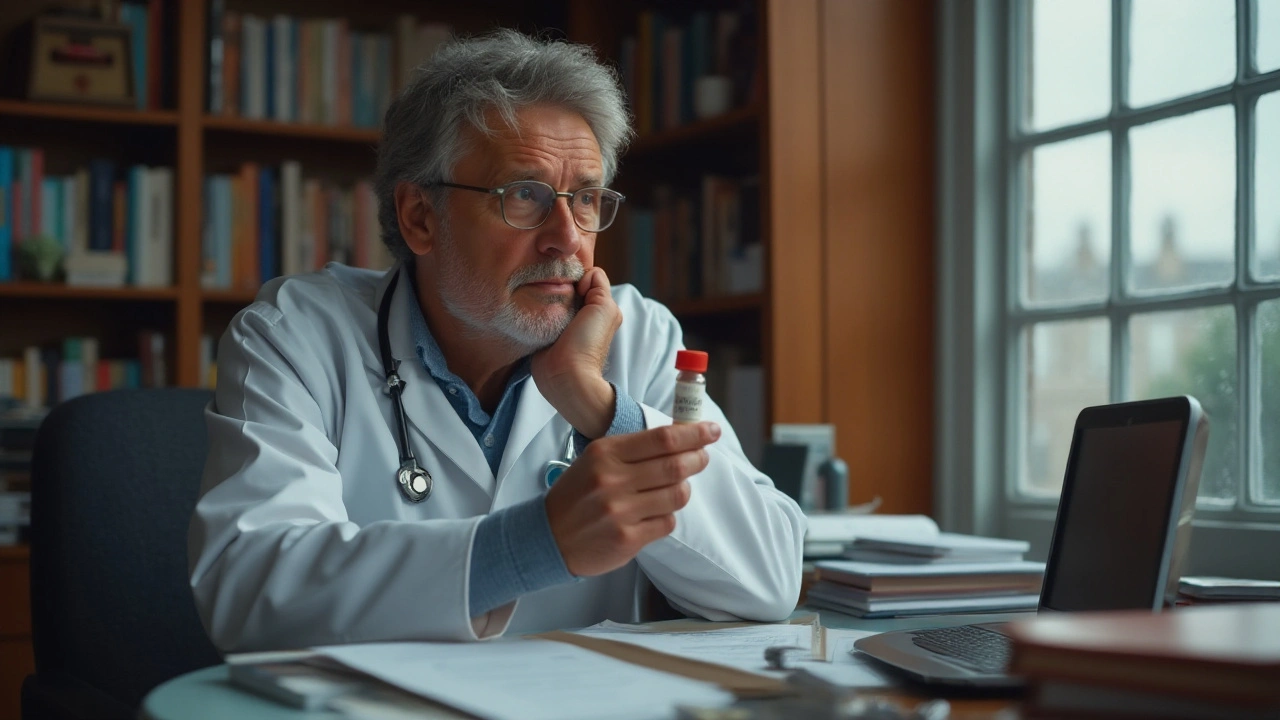Depression — Practical Help, Treatments & What to Expect
Depression changes how you think, feel, and move through the day. It can hide behind fatigue, irritability, or trouble sleeping. You don’t have to guess what it is — common signs include low mood, loss of interest in things you used to enjoy, changes in appetite, and trouble concentrating. If those feel familiar, read on for clear steps you can take right now.
Quick, useful steps you can try today
Start small. Pick one thing that used to make you feel better and try to do it for five minutes — a short walk, a call to a friend, or sitting outside. Track your sleep and aim for consistent bedtimes; sleep affects mood more than most people expect. Keep a simple log: mood, sleep, and one activity. That alone gives your doctor better info than “I feel bad.”
Talk to someone. Tell a friend or family member what you’re experiencing and ask for one specific help — a ride to an appointment, a check-in text, or company for a short walk. If talking feels hard, write your feelings in a message or note to share. You don’t need to explain everything; one honest sentence helps: “I’ve been low and could use a hand.”
Medications and other treatments — what to know
Antidepressants can help many people. SSRIs like escitalopram (Lexapro) are commonly used for depression and anxiety. They often take 4–8 weeks to show clear benefit. Expect side effects early on — nausea, sleep changes, or mild restlessness — and tell your prescriber if they bother you. Stopping antidepressants suddenly can cause withdrawal symptoms, so work with a clinician when changing or stopping a dose.
Some people look into wakefulness drugs like modafinil (Provigil) for fatigue and concentration problems. That’s an option doctors may consider in specific cases, but it’s not a replacement for core depression treatments. Therapy matters too — cognitive-behavioral therapy and brief structured counseling give tools to change negative patterns and handle triggers.
Don’t ignore lifestyle supports. Omega-3s, regular exercise, sunlight exposure, and routine help mood for many people. If you’re interested in supplements or alternative approaches, bring them up with your clinician so they fit safely with any medication you take.
When to get urgent help: if you have thoughts of harming yourself, are unable to care for basic needs, or notice sudden severe changes in behavior, seek immediate help or contact emergency services. If symptoms are milder but persistent, book a primary care or mental health visit — early action improves outcomes.
If you want more reading, our site has deeper articles on specific meds like Lexapro and on related topics such as sleep, fatigue, and safe treatment options. You don’t have to navigate this alone — practical steps, a trusted clinician, and small daily changes add up.

